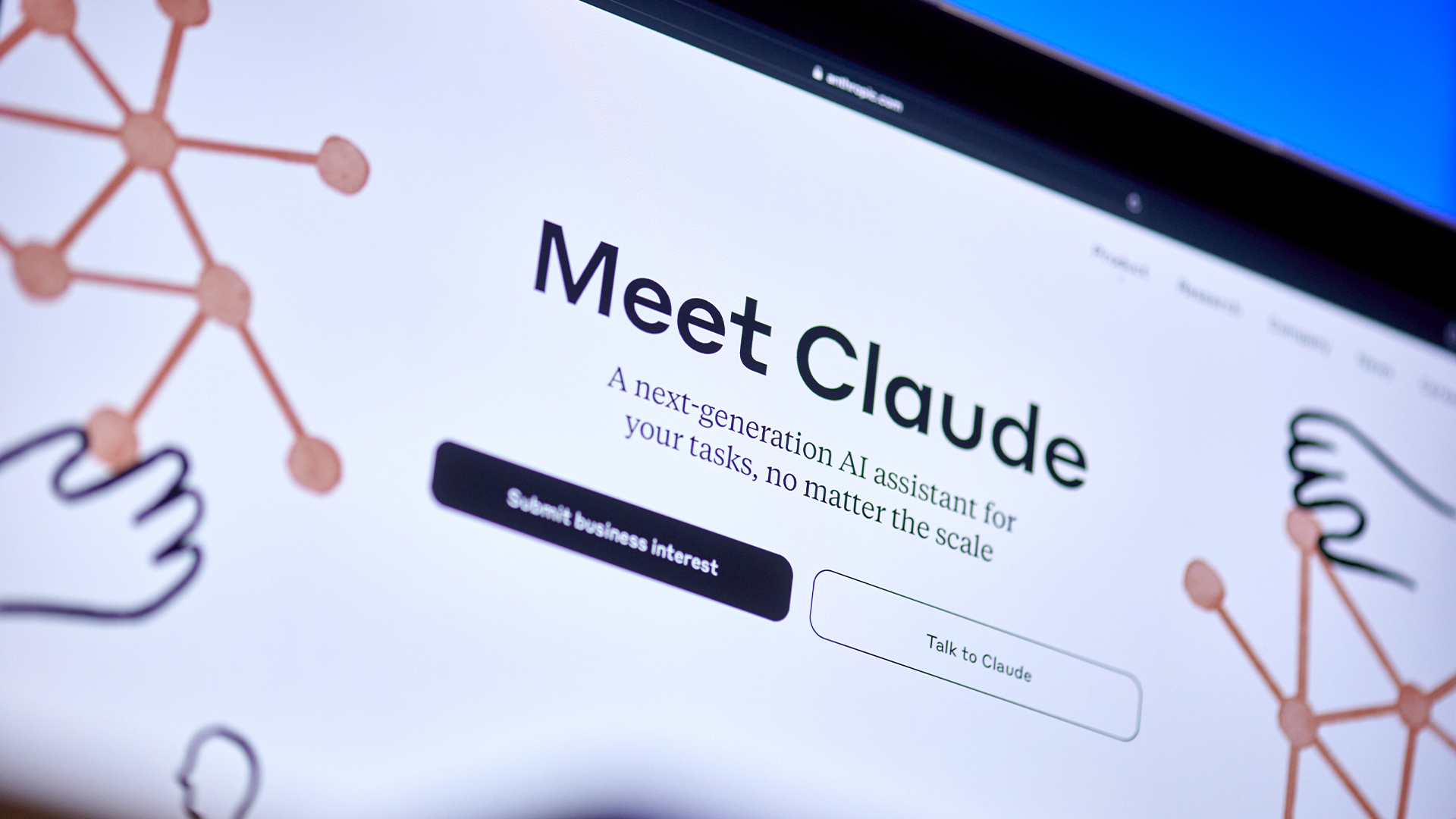Tech talent shortages mean firms are scrapping traditional recruitment strategies
Skills-based strategies and a 'hiring for promise' approach are gaining significant traction


Sign up today and you will receive a free copy of our Future Focus 2025 report - the leading guidance on AI, cybersecurity and other IT challenges as per 700+ senior executives
You are now subscribed
Your newsletter sign-up was successful
With more than half of enterprise leaders worried about future skills shortages, many organizations are turning to a range of new techniques to expand potential talent pools.
According to Workday's Global State of Skills report, only 54% of leaders say they have a clear view of the skills within their workforce today, and fewer than a third are confident that their organization has the skills needed for long-term success.
It's not always technical skill sets that are in high demand, however, with the research finding an equally critical need for uniquely human skill sets.
Social skills like communication and teamwork, and individual skills like resilience and creativity are listed as the most impactful skill gaps faced by organizations today, followed by digital fluency, including AI and software proficiency.
Indeed, the study noted that these skills shortages are leading to a move away from the traditional focus on job roles, qualifications, or titles when hiring and fostering talent.
Workday found firms are instead moving to ‘skills-based talent strategies’, which prioritize an individual’s capabilities over traditional credentials and focus on identifying, developing, and deploying specific skills and competencies.
According to the study, more than half of organizations worldwide are already switching to a skills-based talent model, with another 23% planning to start this year.
Sign up today and you will receive a free copy of our Future Focus 2025 report - the leading guidance on AI, cybersecurity and other IT challenges as per 700+ senior executives
Eight-in-ten leaders agree that adopting a skills-based approach improves productivity, innovation, and organizational agility. They also said it increased access to job opportunities for employees, improved workforce equality, and cut unemployment.
Notably, AI is helping here by streamlining routine and repetitive tasks, enhancing decision making with data-driven insights, personalizing learning and development programs, and predicting the need for future skills.
"AI is reshaping the workplace, but the human element has never been more essential," said Chris Ernst, chief learning officer at Workday.
"Organizations that embrace a skills-first mindset will not only unlock AI’s potential but also harness human ingenuity in new and transformative ways."
There are, though, challenges to a skills-based approach. The time needed to reskill employees was a problem for 43% of business leaders, with 38% having difficulties caused by resistance to change.
Meanwhile, 28% cited a lack of infrastructure to support skills-based talent management, and the same number highlighted inadequate skills measurement tools.
‘Hiring for promise’ gains traction
Running parallel to the skills-based strategy approach, many organizations are also employing ‘hiring for promise’ practices.
Hiring for promise is a recruitment technique which takes into account a candidate’s potential willingness to expand on their existing skill sets, developing new capabilities to support the organization.
Recent analysis from Gartner found that adopting this approach - rather than focusing primarily on traditional criteria - is the most effective and efficient way to close skills gaps in enterprises.
Gartner’s study found that employees hired on promise were 1.9 times more likely to perform effectively, and played a vital role in plugging talent gaps.
RELATED WHITEPAPER

Notably, half of HR leaders said this has been driven by the fact that demand for skills is evolving rapidly, meaning in-house talent can’t keep up with new requirements.
Similarly, with talent pools drying up across a range of professions, recruitment professionals are widening their nets to compensate.
"Waiting to find an employee with all of the exact skills listed for a role significantly shrinks the pool of potential candidates," said Annika Jessen, director of the Gartner HR practice.
"Instead, managers should focus on defining simple, foundational role requirements to reach a wider group of candidates."
MORE FROM ITPRO
- 64% of hybrid business leaders want staff back in the office
- DEI rollbacks could exacerbate tech talent shortages
- Why laid-off workers are ditching full-time work
Emma Woollacott is a freelance journalist writing for publications including the BBC, Private Eye, Forbes, Raconteur and specialist technology titles.
-
 Going all-in on digital sovereignty
Going all-in on digital sovereigntyITPro Podcast Geopolitical uncertainty is intensifying public and private sector focus on true sovereign workloads
-
 Microsoft says 100% of its global electricity consumption is now matched by renewable energy
Microsoft says 100% of its global electricity consumption is now matched by renewable energyNews The tech giant is among the largest corporate purchasers of renewable energy
-
 Veeam ramps up growth plans with trio of leadership hires
Veeam ramps up growth plans with trio of leadership hiresNews The data resilience vendor has reshaped its senior leadership team to deepen partner engagement and streamline customer success in the AI era
-
 "We want AI to work for Britain": The UK government wants to upskill 10 million Brits in AI by 2030 – and the courses are free to access
"We want AI to work for Britain": The UK government wants to upskill 10 million Brits in AI by 2030 – and the courses are free to accessNews The nationwide upskilling push aims to help UK workers capitalize on the generative AI boom
-
 Lloyds Banking Group wants to train every employee in AI by the end of this year – here's how it plans to do it
Lloyds Banking Group wants to train every employee in AI by the end of this year – here's how it plans to do itNews The new AI Academy from Lloyds Banking Group looks to upskill staff, drive AI use, and improve customer service
-
 Lisa Su says AI is changing AMD’s hiring strategy – but not for the reason you might think
Lisa Su says AI is changing AMD’s hiring strategy – but not for the reason you might thinkNews AMD CEO Lisa Su has revealed AI is directly influencing recruitment practices at the chip maker but, unlike some tech firms, it’s led to increased headcount.
-
 Keeper Security expands federal bench with latest senior hires
Keeper Security expands federal bench with latest senior hiresNews The security vendor has bolstered its federal team to support zero-trust access, operational execution, and government modernization efforts
-
 HackerOne eyes enterprise growth with double C-suite appointment
HackerOne eyes enterprise growth with double C-suite appointmentNews Seasoned industry executives Stephanie Furfaro and Stacy Leidwinger have joined the cyber security vendor’s executive team
-
 Want to get the most out of Anthropic’s Claude AI assistant? This new training course will give you prompt engineering tips and how to use Claude Code
Want to get the most out of Anthropic’s Claude AI assistant? This new training course will give you prompt engineering tips and how to use Claude CodeNews New Coursera specializations aim to help Claude users of all levels brush up on their skills
-
 Enterprises are cutting back on entry-level roles for AI – and it's going to create a nightmarish future skills shortage
Enterprises are cutting back on entry-level roles for AI – and it's going to create a nightmarish future skills shortageNews AI is eating into graduate jobs, and that brings problems for the internal talent pipeline
